NRL
Pain & joy that made Freddy
I’ve known Brad Fittler since he was a kid. He used to knock around with my brother, Ben.
He’d come around to our place as a 14 or 15-year-old after school and they’d hang out together. I was seven years older than Brad and playing first grade for Penrith, so I didn’t know him as any more than one of my little brother’s mates back then.
I wouldn’t have guessed we’d become lifelong friends ourselves. He and his wife, Marie, are godparents to my wife Tanya’s and my youngest son, Benny.
Brad had a single mum, Christine, who worked hard, so he was unsupervised a lot of the time and left to his own devices.
That’s just the way it was in those kind of situations. He was a bit loose. He probably got up to a bit of mischief. Nothing criminal or anything like that. Just ran his own race, basically.
He was very respectful at our place, a good kid. We didn’t talk footy. I knew there was a wrap on him, but I hadn’t seen him play at that stage. The first time was when he started playing school footy with Ben.
It became clear to me then that he was going places. It was only a couple of years later that he exploded on the scene for all to see as a 17-year-old at the Panthers.
Brad Fittler aged 17 at school in 1989 just after he made his first grade debut for Penrith. pic.twitter.com/y7rmzJauV0
— That's Rugby League (@RugbyLeagueGold) June 27, 2016
A lot has been said and written about the day late in the 1989 season when he made his first-grade debut against Western Suburbs at what was called Orana Park. He came on in the second half and put on his freakish side-step and a chip-kick as well to set up a couple of tries in a big win.
I scored one of those tries off him and I remember thinking, ‘Wow, how good’s this? This kid is going to be part of our team every week from now on’.
Brad was still going to school at that stage. It was a Sunday game and he was telling the journos in the dressing-room afterwards that he had to do some homework that night. I doubt if any got done. He would’ve had trouble coming down from the buzz.
Two weeks later, our coach, Ron Willey, threw him into the starting side at five-eighth for a semi-final against Balmain. It was a massive shock to the rest of us, particularly as we only found out 20 minutes before kick-off.
It didn’t bother Brad. Nothing fazed him.
It was like he didn’t have a care in the world, but underneath that don’t-give-a-rat’s attitude was a determined, tough and relentless competitor who was very confident in his own ability.
A dead-set star had been born.

GROWING UP QUICKLY
That wasn’t Penrith’s year, but we were headed for big things. And each level Brad went up, he handled it brilliantly.
In 1990, we played State of Origin together. That’s when NSW coach Jack Gibson either misheard Brad’s name or just decided he was going to call him Freddy anyway.
Freddy Fittler. It stuck.
Freddy attacked every challenge that was put in front of him. He was still only 18, but he never thought about it as a kid taking on men – hard blokes with vastly more experience. It was still just a game to him. A game of footy. He excelled at that.
We made the grand final under Phil Gould. I knew we were going to win our major semi against Canberra when we were walking down the tunnel and I heard Freddy behind me, crying his eyes out.
Gus had made this great speech in the dressing-room about how close we were as a bunch of blokes and the emotion was palpable. We were going to be too strong.
The Raiders beat us when we played them again in the grand final, but then four of us Panthers – myself, Freddy, John Cartwright and Mark Geyer – got picked for the Kangaroo tour.
It was my second Roos tour and what a blast it was.
I played in the Tests against the Poms and the French. Freddy was probably good enough to be in the Test team as well, but he was still a kid and he took it as a bit of a Contiki tour.
He didn’t miss the buffet and went from about 95 kilos to 105.
Eat, drink, play the midweek games and enjoy yourself was his mantra.
Carty and Kevvy Walters got maced by a French shopkeeper who thought they were burglars when all they were doing was looking for a feed late at night and knocking on his window.
Carty had to wear eye patches and be led around for a couple of days. He went out for a while with Freddy and MG and they steered him to the toilet when he needed to go. The only thing was it was a women’s toilet. Freddy and MG bolted and left half-blind Carty to cop heaps from a bunch of very unimpressed French women.
He was telling the journos in the dressing-room afterwards that he had to do some homework that night. I doubt if any got done.
It was at one of Penrith’s first training sessions heading into the 1991 season that Freddy arrived on a noisy dirt-bike. You could hear him coming from a mile away.
He was wearing thongs and had one of those bags made out of hemp or something over his shoulder. He looked like a hippie.
Gus told him to go home and sort himself out.
Freddy did that. He wasn’t silly, he was just young. It was just a little stage he was going through and he snapped out of it pretty quickly. He was never a person who rebelled against authority. He always took note of what the coach or the more experienced players said.
We won the comp that year. Freddy’s contribution was enormous. He’d grown up in a hurry on the footy field and it showed with his destructive ball-running out in the centres.
It was this simple: Freddy knew he was blessed with freakish ability and that he had to use it for the good of the team and back himself. He didn’t need an invitation to get involved in the game. He would just burst through the door at the right time.
The following year brought with it the most difficult time of my life, when Ben was killed in a car accident.
Freddy was very close to Ben as well. They were part of a big group of mates who did everything together.
Freddy left an Australian team camp to grieve with us and attend the funeral. That brought the two of us together even closer. I’m so glad Ben and I got the chance to play first-grade together, even if it was only for a short time, and that Freddy was able to be a part of that.

TOUGHNESS & NERVES
Freddy changed as a player when he went to the Roosters in 1996.
All of a sudden, he was the man. He was their huge signing and needed to be accountable for results. That serious side was always in him, behind the easygoing exterior, but now it came out more.
I thought the move made him as an elite footballer. He became consistent. A great leader.
Tough as teak.
He copped a shocking forearm that fractured his cheekbone playing for Australia in the World Cup final in England in 1992. But he kept going. His face blew up like a toad.
And then there was the head clash with Richard Villasanti from the Warriors in the 2002 grand final, when Freddy was on the ground and Villasanti speared at him.
Freddy got up wobbly and bleeding. He’d be off for a HIA assessment if it happened today and might not get back on. Who knows? If what we’ve got now had been in place then, the Roosters might never have won that game.
Those were a couple of major incidents, but beyond that it was just the week-in, week-out toughness he displayed, whether it was at five-eighth or lock, and his ability to play with injuries he’d take into games and still be effective.
There were seasons when his leg was nearly falling off, or his groin completely stuffed, but he’d needle up and out he’d go.
It was no surprise to anyone who played with him. He’d become an Origin player less than 20 games into his career. You don’t accomplish that unless you’re tough – mentally and physically.
It was this simple: Freddy knew he was blessed with freakish ability and that he had to use it for the good of the team and back himself.
Freddy would often get pre-match nerves and be vomiting in the dressing-room, but there are plenty of players like that.
Alfie Langer used to do it. Pre-match nerves are good. It shows what you’re about to do means a lot and that you’re on your toes.
When he started working for Channel Nine while he was still playing, he’d sometimes sweat bullets on-screen during his early appearances on The Footy Show because he was nervous, which I can understand because I was nervous myself when I started off doing it.
He’d have a bit of trouble being in large gatherings as well. I’m not talking about playing in front of 50,000 people – that was a breeze for him – I’m talking about at functions. It didn’t have to be a rugby league thing where he was the centre of attention either.
I’ve witnessed it. I’ve seen him walk into a church for a wedding and sweat up a bit because he was nervous.
Maybe he felt guilty about something and wasn’t comfortable being in the Lord’s house!
But that’s all way in the past. He’s relaxed about any occasion now. He knows what he wants in life for himself and his family and he’s going out to get it.
Freddy had to try to find his niche as a commentator. None of us were born to do this sort of thing. We all had to learn. And his style was a bit different to others. He’d come up with a few left-field ideas and his delivery was sometimes a bit zany.
But he got a bum rap as a bit of a space cadet because of that.
He has settled into a comfortable rhythm on television now. He’s actually a very normal bloke who thinks outside the square a bit.

A COACH IS BORN
Freddy was one of those blokes who said he was never going to coach.
He’d seen what blokes like Gus had gone through and was adamant he wasn’t going to subject himself to that. So when it looked like he might be coaching the Roosters, I baited him and said, ‘Don’t do it Freddy! Remember what you said!’
But he did it and, after he’d been in charge of the Roosters for a while, it was clear the coaching bug had bitten him.
He was unhappy about the way it ended for him at the Roosters, with the sack. He thought he’d been stitched up a bit by certain players. The team wasn’t playing well and the club sided with the players rather than the coach.
Who would’ve thought? Player unrest causing the sacking of a coach!
That’s nothing new, but it’s not easy to take either.
Especially for a bloke like Freddy, who is inherently loyal.
He really is a coach now. The Roosters stint, even if it didn’t finish as he would’ve liked, was great for him in terms of experience and he’s since been heavily involved in the City side and coached Lebanon with distinction at the World Cup.
Now he’s the NSW coach and taking on one of the biggest challenges of his life: to get the Blues back on top in State of Origin.
Coaching NSW is much different to coaching a club side and it’s going to suit Freddy. You’re not building over the course of a season. You’re looking at about an eight-week period starting with the preparation for the first game through to fulltime in the third.
You’re in camp for 10 days prior to a game and he has shown that short style of tournament suits him, whether it’s preparing the City side or what he did with Lebanon.
I know Origin’s different to coaching Lebanon in the World Cup, but the basic principles are the same. You’re just dealing with a bigger beast and more talented players.
Part of getting the side ready is about desire – playing for the jumper – and part of it is tactical. You can’t be missing in either category. You need to be passionate, desperately so, but you need to be smart as well. Freddy covers all those bases.
I’ve watched him talk to players at the NSW Emerging Players’ camp. He knows how to get his point across. I can see how players enjoy the idea of being around him because they know they’re going to be encouraged to develop and showcase what they’ve got.
When Freddy knew he was getting the Blues job and asked me to be his advisor, I was humbled.
We’ve got a great mutual respect, but my role is to tell him what I think even if I disagree with him.
If I’m not doing that, I’m letting him down.
Different points of view help you pick the right side in the end.

Danny Buderus is a part of that process as well and I’ve had a couple of chats to Gus. Freddie talks to Gus, too. Gus is a man who’s done it all as an Origin coach. He’s a great brain to pick.
Freddy thinks similarly to how I do about footy. The game’s not as complex as some make it out to be. I think players enjoy that simpler approach. Freddy’s a modern-day coach with an old-school mentality. He’ll make camp an enjoyable place to be while focusing on the end goal.
I’ve seen it suggested that we’re trying to pick a lot of new players to cut ties with the recent history of the Blues losing a lot of series.
It’s not like that. There’s no deliberate thing. We’ve just been looking for players who are in form, whether they’ve been there before or not.
Defence is critically important as well, but they’ve got to be able to attack. You can’t rely on beating Queensland with low totals.
If there’s a new bloke we think can do the job, we’ll rely on him having the right mentality for Origin and to be ready once he runs out there. If there’s an incumbent we think can do the job, he’ll play.
We just want to win and we’ll do everything in our power to make that happen.
More about: Audio Recording | Brad Fittler | Coaching | NSW Blues | Queensland Maroons | State of Origin
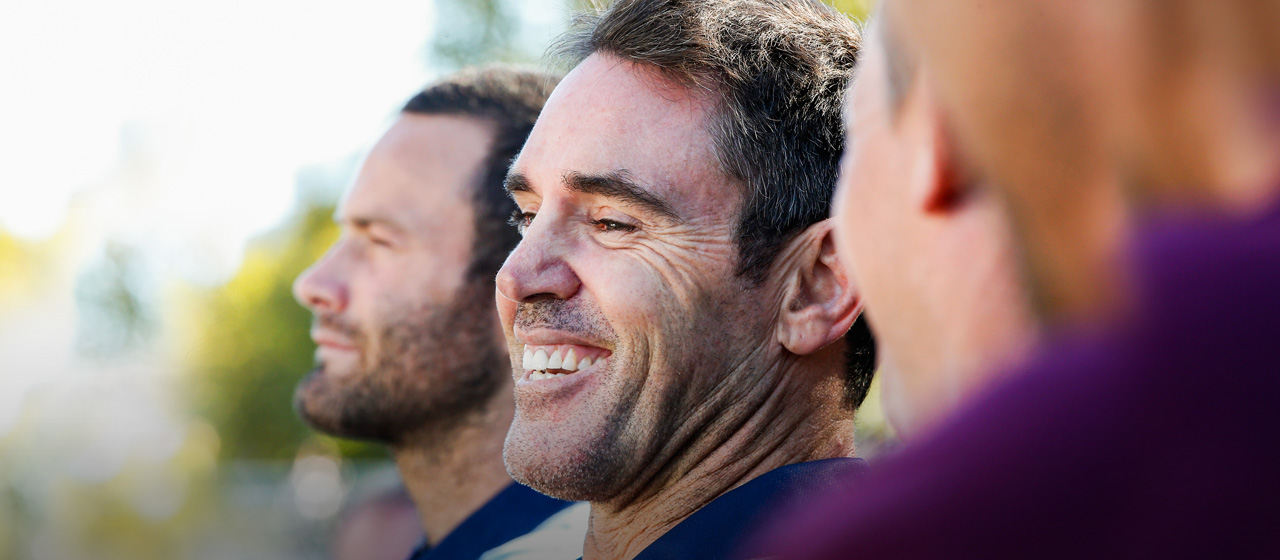
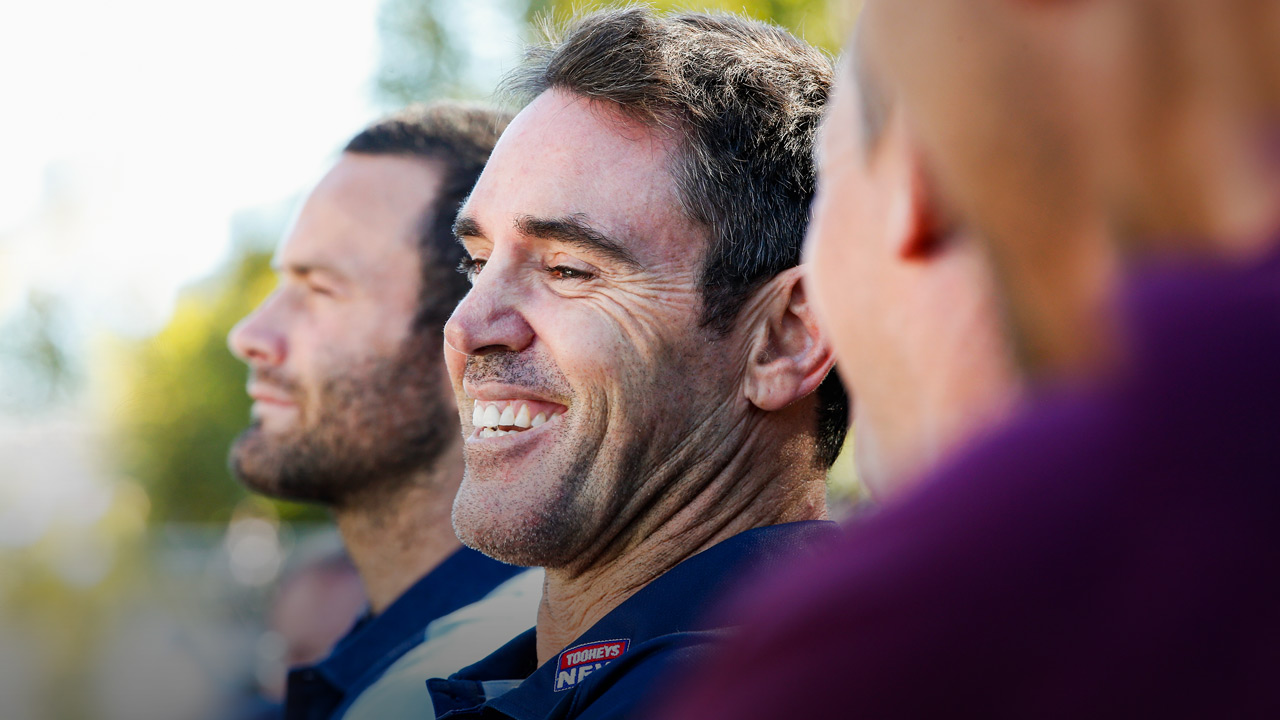


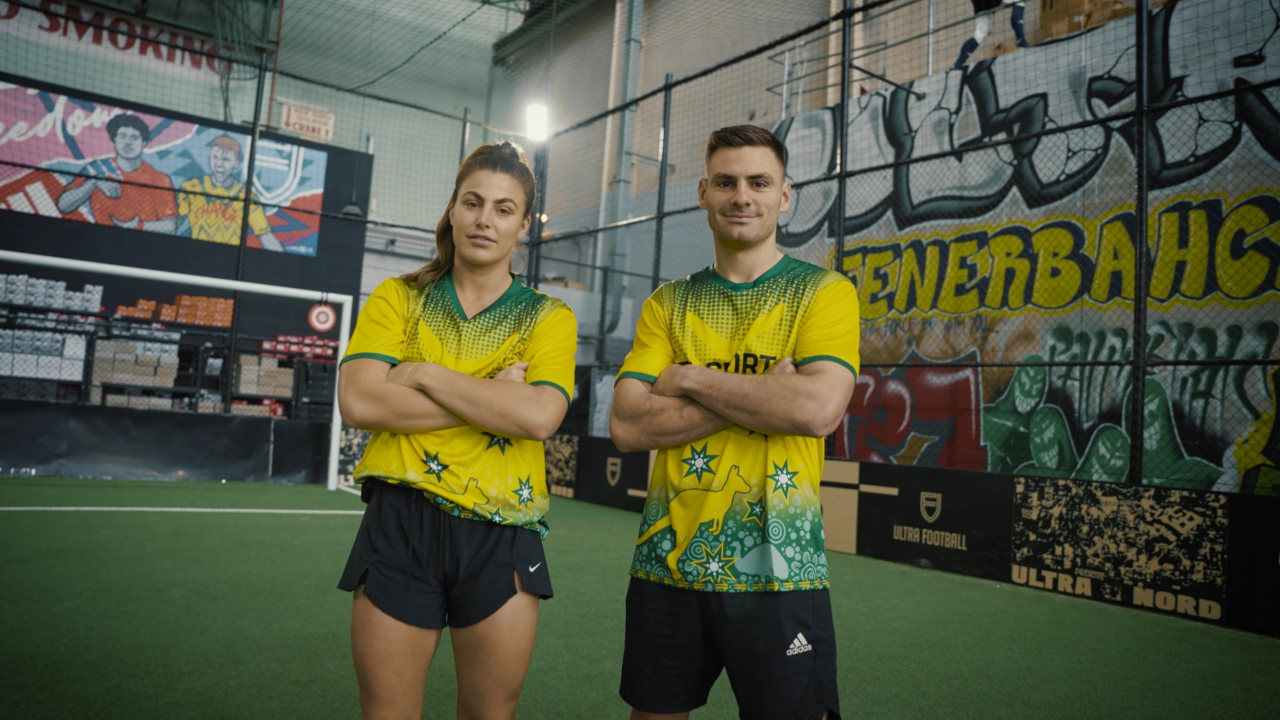
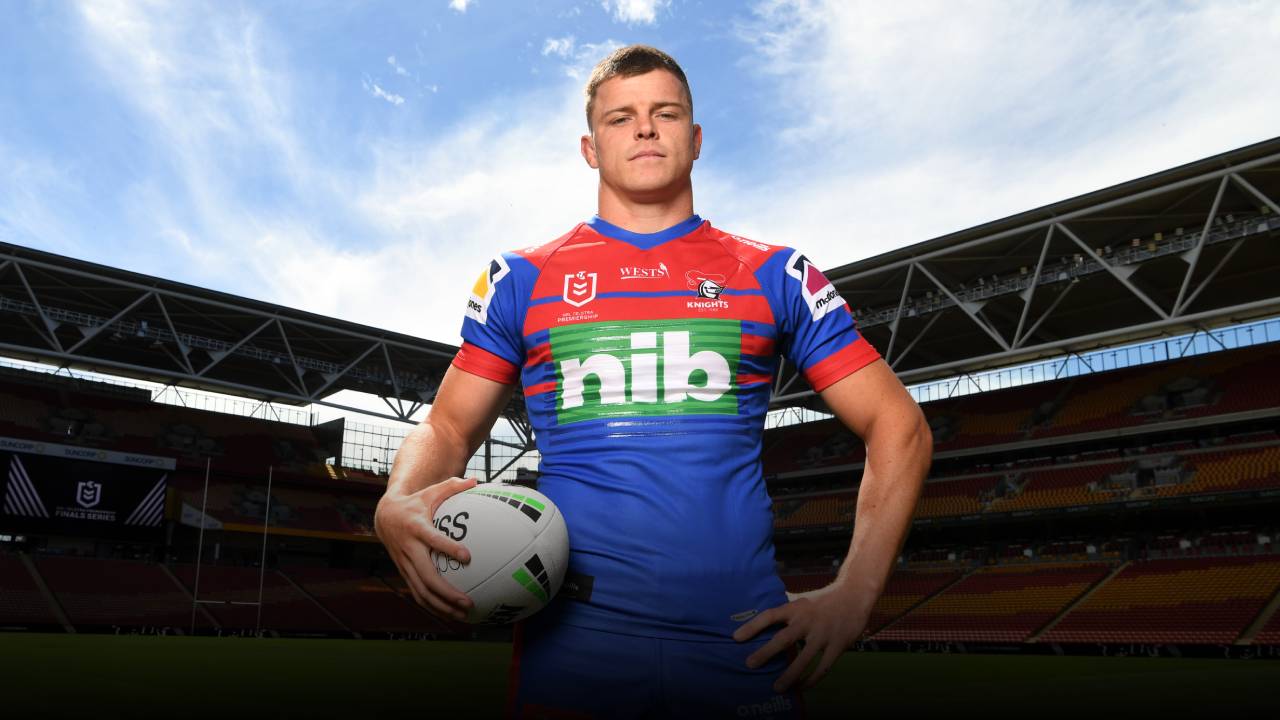
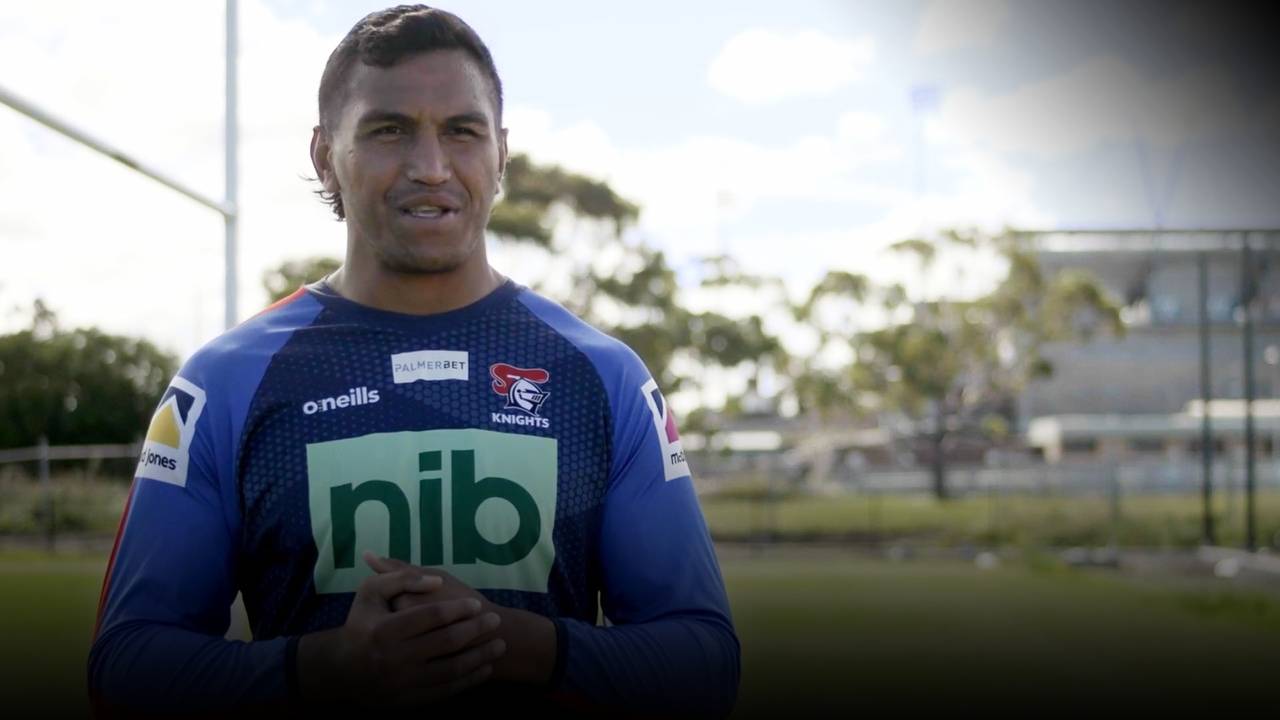
 Load More
Load More